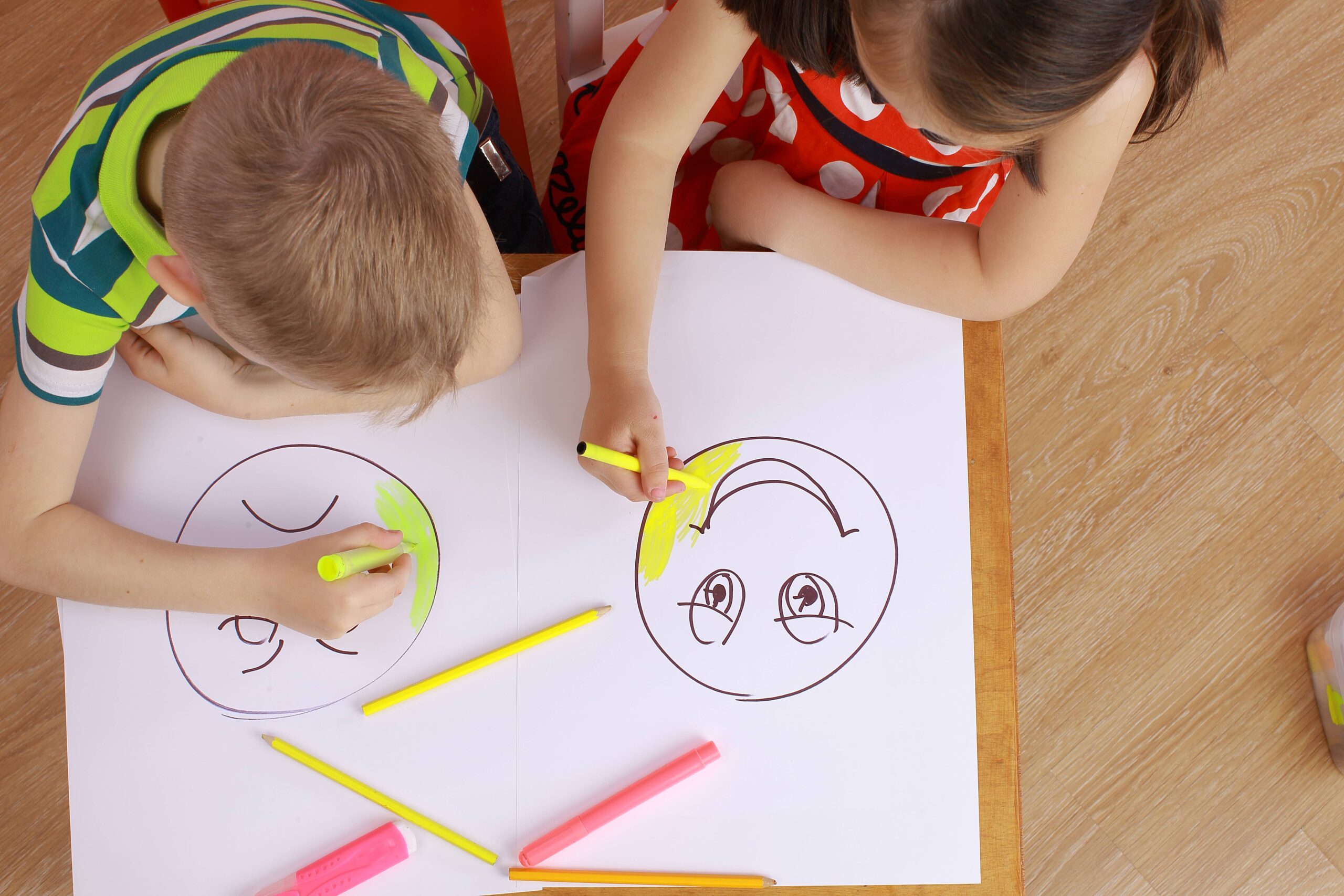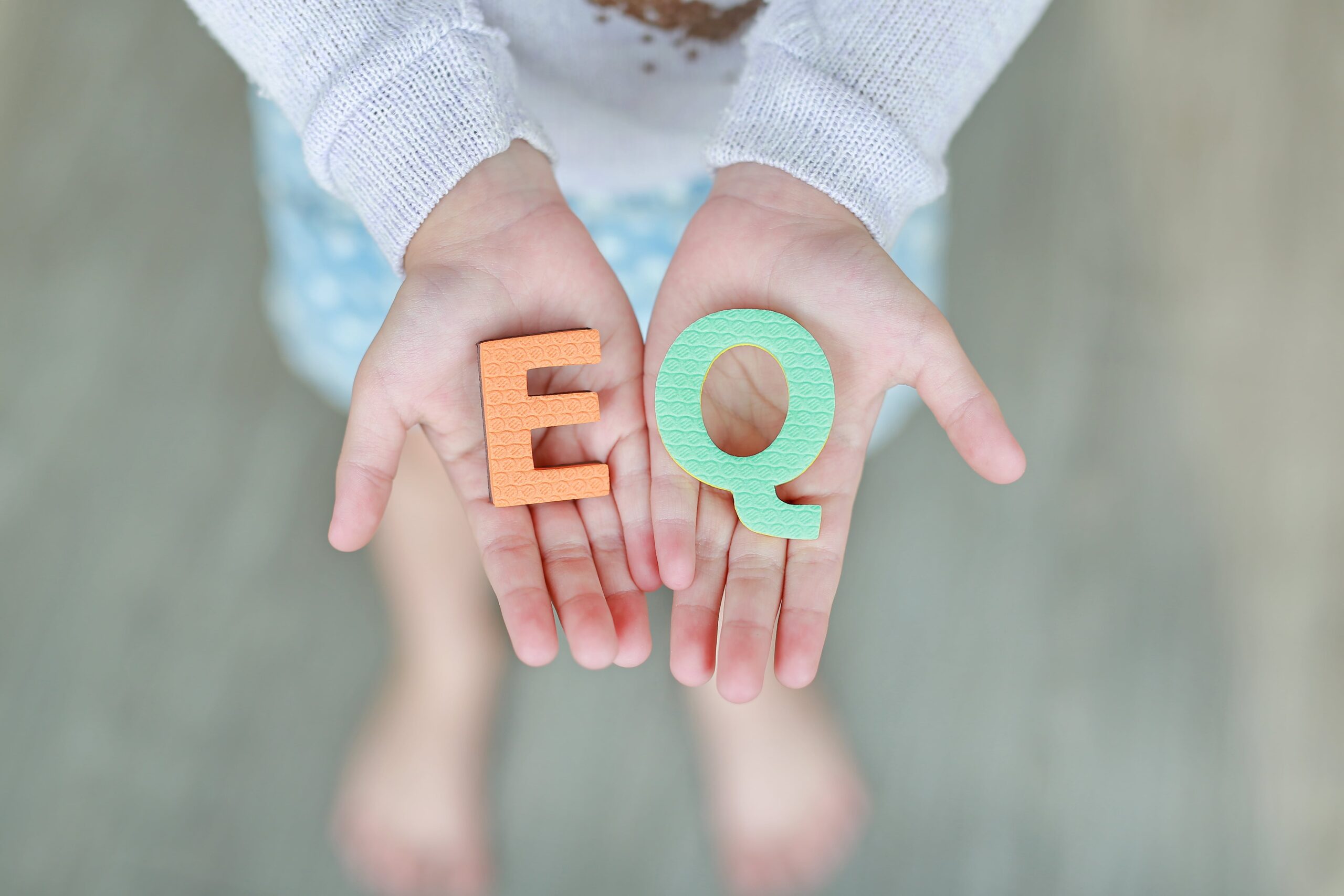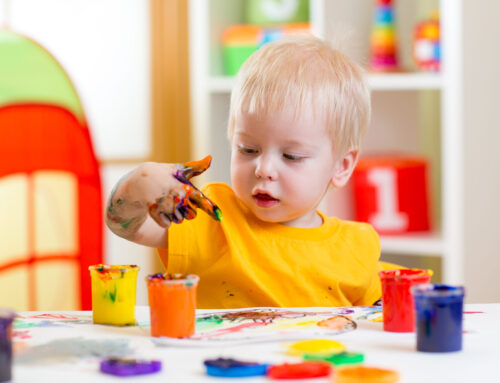One of the basic tasks of every preschool is to prepare a child for school. A child’s success at school is determined not so much by exceptional reading skills or knowledge of various sciences, but by skills in the field of emotional intelligence. Emotional intelligence is, among other things, a set of emotional and social traits such as: awareness of one’s own value and one’s own strengths, curiosity about the world around them, the ability to wait, following instructions and asking others for help, and the ability to express one’s needs in contacts with other people.
Emotional intelligence skills
However, before a child goes to school, they have to learn a lot in the preschool that their parents choose for them. Our preschool is often the first place where a child has the opportunity to have broader contacts with peers. It is also a space to face their own independence, skills and coping with overcoming difficulties. Before starting education at Happy Kids’ Academy, the child was often under the care of close people – mother, grandmother or a trusted caregiver. Adults were always close – they accompanied the child in games, exploring the world around them, and were also close during children’s games. The child benefited from such closeness – the adult often resolved conflicts with other children, was right behind the child during the first falls and scrapes, and was always helpful in difficult or interesting events. The child often had an adult exclusively, without having to share him or her with other children. Such a 1 + 1 arrangement was extremely comfortable for the young person.
After coming to our kindergarten, the world around the child changes. It is here, often for the first time, that the child experiences a situation in which he or she is just as important as other children, that he or she has to wait for his or her turn or share a toy, and the adult’s attention is not focused solely on him or her. Such an experience is often new for the child and this is the time when the child acquires many skills in the field of emotional intelligence.

In our kindergarten, in the company of others, the child learns social and emotional behaviors. It is here, during everyday contacts with other children, that there is time to face your own needs, the needs of other children and the ways of satisfying them in such a way that it is socially acceptable and does not expose the child to unpleasantness. During planned activities, we teach the child what a person looks like – their facial expressions and pantomimicry when experiencing different feelings. We shape the child’s knowledge and skills on how to express their own feelings and recognize the feelings expressed by other people. During classes on emotional intelligence, the child is provided with patterns of behaviour when experiencing emotional states, especially those that are unpleasant for the child. This is also the time when we shape the child’s communication skills during contacts with other people.
Shaping emotional intelligence skills
As a result of our planned and occasional shaping of emotional intelligence skills, the child acquires the ability to control their behavior. This will allow them to determine whether they are able to complete the tasks set for them and what is needed for this. They learn that they do not have to do everything on their own, that they can always ask their friends or an adult for help. They become convinced that acquiring new, unknown skills and knowledge can bring pleasure and satisfaction. They are able to establish contacts with other people, as a result of which they gain new acquaintances, exchange experiences and knowledge, ideas. As a result of contacts, they gain knowledge that they understand others and are understood by others. They gain knowledge about their own skills, which allows them to plan activities in areas that guarantee success and to act in areas where they are weaker, knowing that their actions may be at risk of failure.
Emotional intelligence classes
However, educational activities that are systematically conducted in our kindergarten are not the only way to shape skills in the field of emotional intelligence. Observing other people and practicing independently play a very important role. One of the ways that we use in our kindergarten to model a child’s behaviour is the direct example of an adult. Teachers at Happy Kids’ Academy, through their everyday behaviour, provide children with direct knowledge: how people cope when experiencing feelings, how they communicate when expressing them with others, and how they plan activities related to meeting their own needs. Our teacher, through his example, provides children with knowledge on how to cope in a situation when expectations are not met, how to encourage others to act together, and how to take care of other people.

Children in our kindergarten, by imitating the teacher’s behavior and gaining knowledge during planned classes in emotional intelligence, create a base that they will use more and more efficiently as they learn. Many activities that test a child’s knowledge and skills in the field of emotional intelligence are verified in direct action throughout the day of their stay in kindergarten. It is during free play that a child has the opportunity to actually train emotional skills. A child must learn how to invite other children to play or act together; how to establish rules and how to modify them; how to maintain joint play, and also how to express their feelings related to the course of play, e.g. their dissatisfaction.
Emotional maturity
It is during free play that our teachers closely observe the children’s actions and reinforce those behaviors that are consistent with the content introduced during planned teaching of behaviours in the field of emotional intelligence. It is during contacts with others that children have the opportunity to face their own or a friend’s dissatisfaction, the desire to have an attractive toy, the need to be a leader or moderator of joint activities or to care for another person and their needs. Positive conclusions for the child from our teachers are the building blocks from which the child builds a strong positive sense of self-worth, and therefore the foundation of what we call emotional maturity.
In our kindergarten, we plan activities so that there are as many experiences and opportunities as possible to actively use patterns leading to emotional maturity, thus creating conditions for the child to achieve greater readiness to start school and achieve success there.
Beata Chrzanowska-Płatek – director of the Happy Kids’ Academy – bilingual kindergarten and nursery. Kindergarten and nursery Warsaw Mokotów.


